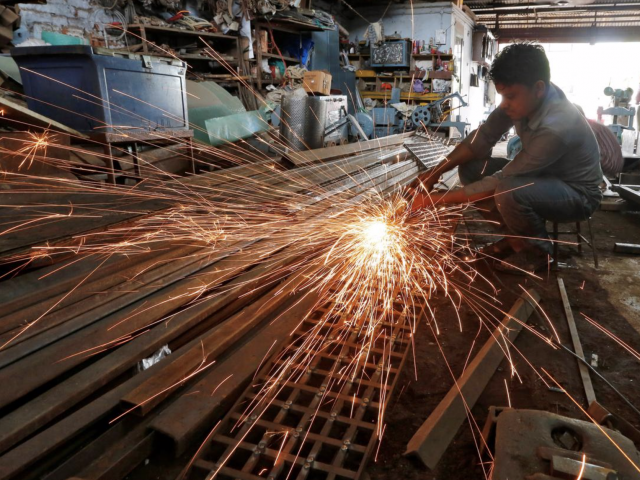Pakistan’s productivity lower than Bangladesh
Experts say awareness of export promotion tools will open doors to new markets

Experts have said that raising awareness of various instruments available to facilitate export promotion and compliance with international standards can open doors to new markets across the globe for small and medium enterprises (SMEs) of Pakistan.
In an online dialogue titled “Textile and Garment Industry Outlook amid Covid-19,” on Thursday, World Bank Senior Economist Gonzalo Varela pointed out that productivity of Pakistani enterprises was quite low compared to Bangladesh and India.
“Low investment is one of the key reasons behind this phenomenon and, therefore, more capital needs to be diverted towards enhancing trade capabilities of the private sector,” he added.
He stressed that attracting foreign direct investment (FDI) could help export enterprises to integrate with global value chains. “Pakistan can incentivise firms to export by curbing tariffs on imports, improving logistics and promoting smart branding,” he said. On the other hand, the Trade Development Authority of Pakistan (TDAP) could assist with branding and promotion, he added.
Moderating the discussion, Sustainable Development Policy Institute Joint Executive Director Dr Vaqar Ahmed underlined the need for creating awareness of export promotion schemes introduced by the government across the SME sector.
“SMEs need help to understand and meet buyers’ requirements, which have become stringent during Covid-19 pandemic,” he said.
“The Ministry of Commerce, along with Small and Medium Enterprises Development Authority (Smeda), can teach small firms how to comply with quality control measures, pre-shipment and border clearance requirements and other conditions imposed by buyers.”
According to him, public-private dialogue should be encouraged as it would help the government understand the role of SMEs in the trade space and how they could be aided to cope with the Covid-19 crisis.
Moreover, he said, it would also help to reflect stakeholders’ position on fiscal, trade and SME policies.
Honorary Consul General of the Czech Republic Kamal Monnoo said Pakistani textile enterprises suffered when consumption declined in the European Union and the United States.
“In such a scenario, the government’s top priority should be to support the survival of exporters at least for the next six months,” he said. “The four main costs which are considerably high in Pakistan are electricity tariffs, gas charges, wages and general sales tax and they should be reduced.”
Ayesha Spinning Mills CEO Rahim Nasir said Covid-19 had led to at least 30% contraction in global demand for textile and garments. He stressed that the minimum turnover tax should be abolished and tax refunds of exporters should be processed at the earliest.
Pakistan Hosiery Manufacturers Association (PHMA) former chairman Muhammad Babar Khan called for introducing a new trade policy, aimed at promoting a culture of export facilitation across federal and provincial governments.
Federal Board of Revenue’s former adviser Tayyaba Batool said the tax collection authority was taking measures to simplify the process of accessing export promotion schemes. National Productivity Organisation board member Hamid Tufail Khan highlighted the need for enterprises to learn good benchmarking standards.
Referring to the China-Pakistan free trade agreement, National Tariff Commission economist Ghulam Qadir said the accord was creating favourable opportunities.
Published in The Express Tribune, July 10th, 2020.
Like Business on Facebook, follow @TribuneBiz on Twitter to stay informed and join in the conversation.



















COMMENTS
Comments are moderated and generally will be posted if they are on-topic and not abusive.
For more information, please see our Comments FAQ